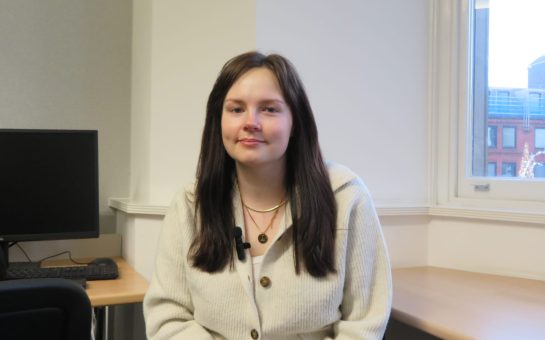Cats and dogs are increasingly being used for scientific experiments, a motion that has been slammed by Manchester MPs last month.
Sir Andrew Stunnell and Jim Dobbin backed the motion after Home Office figures confirmed more than four million animals were used in UK experiments in 2012.
Statistics revealed the number of cats used increased by 32% to 202 cats and the number of dogs used increased by 12% to 3,214.
Sir Andrew said: “The evidence is clear – three and a half thousand cats and dogs were used in experiments last year in Britain, and I do think it’s time for the Government to chart a course to ending all such experiments.
“That’s what the pet-owning public want to see, and that’s why I’m backing the call in Parliament for action.”
In 2010, the coalition government stipulated animal experimentation would decline, yet the figures mark the third year they have failed to deliver results.
Isobel McNally, an organising member of Manchester Animal Action (MMA), has labelled this failure a ‘broken promise’ from the government.
Ms McNally said: “The increase is much bigger than we thought it would have been and, obviously, something is going wrong.
“The numbers are increasing because pharmaceuticals are big business.
“UK companies are copying other drugs on the market and making their own version and the government are not clamping down on that kind of behaviour.”
The figure rose 8% last year despite a promise to ‘end the testing of household products on animals and work to reduce the use of animals in scientific research’.
The increase includes many of the most controversial experiments, as 1.91million genetically modified animals were used this year in a 22% increase from the previous year.
Mr Dobbin commented upon the increase, stating: “These statistics, taken from the Government’s own publication, are truly shocking.”
The motion Mr Dobbin has endorsed states it is ‘unacceptable’ cats and dogs are still used in experiments, as many people consider them their best friends.
Cats are used in animal experimentations for research involving the nervous system while dogs aid the research into rejecting transplanted organs.
Mice, however, were the most frequently used animal, accounting for about three quarters of procedures whilst dogs, cats and primates made up only 0.14%.
The government report said: “The overall level of scientific procedures is determined by a number of factors, including the economic climate and global trends in scientific endeavour.”
Nonetheless, Mr Dobbin argued: “I’m sure my Constituents would agree with me that the use of companion animals such as dogs and cats in experiments is an abomination in 2013.”
“The Government should do more to stop this.”
Home Office Minister, Lord John Taylor, has defended the report, explaining the UK is maintaining their high standards of welfare and animal protection.
Lord Taylor said: “The report shows that the UK has one of the world’s most rigorous systems to ensure that animal research and testing is only carried out where no other alternatives exist and under stringent controls where suffering is kept to a minimum.”
However the Humane Society International’s (HSI) analysis into government spending revealed they spend just 66p on non-animal replacement research for every UK laboratory animal used.
This is after the HSI discovered the government gave £5.46million of their £4.6billion overall annual UK science budget to the research of replacement of animals.
Ms McNally lamented the staggeringly low investment and said: “The government are absolutely not spending enough money, especially when you consider how much money charities like BUAV are donating.
“They shouldn’t have to be putting their own money in. The government need to stick to what they say they’re going to do.”
The government does however; require all scientists and researchers who undertake animal research in the UK to take into account the ‘3Rs’.
The University of Manchester is one of the institutions that are bound by the government’s policy of Reduction, Refinement and Replacement of animal models.
As one of the leading centres for medical research in the UK, the university sometimes involves animals in their progress to alleviate human suffering.
A spokesman from the university explained: “The University is actively involved in the search for new technologies, such as computer modelling and tissue cultures, which will reduce the number of animals used in medical research.”
However, MAA remains unmoved by the university’s statement and persistently raises awareness about the nature of the university’s research at Open Days.
Ms McNally explained: “They’ve put a lot of money into their vivisection laboratory so changing this would mean they have to refit their laboratories and get new means of alternatives in.”
The university claim animal testing has assisted research into Parkinson’s disease, intestinal worms, tendon injuries and cancer.
Despite this, MAA stipulate that animals, such as mice, are too genetically different to humans to produce effective results.
Ms McNally said: “Animal lives are very cheap. People are talking about scientific advancement but I’ve not seen a cure for cancer yet.”
“It’s clear that cures for mice don’t work on humans and it’s time we move on from the testing of animals.”
Although it has proved extremely difficult to develop non-animal replacement methods, Ms McNally is pleased the public awareness of the necessity to develop alternatives is rising.
“We have had some great advancement in the field of animal testing,” Ms McNally explained.
“Scientists don’t test cosmetics and hopefully the public and government have started to realise it’s not acceptable anymore.
“I think worldwide people are realising that alternatives to animal testing are out there.”
Image courtesy of b1ue5ky via Flickr, with thanks
For more on this story and many others, follow Mancunian Matters on Twitter and Facebook.



